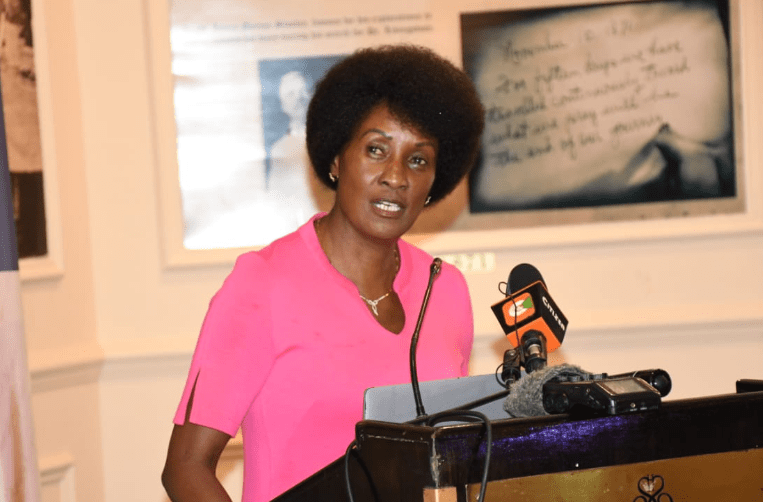Why Kenya must not surrender to mob rule

Kenya is again facing a dangerous moment. What began as legitimate citizen protests against the high cost of living has now morphed into a worrying wave of violence, looting, and destruction of property.
The country has witnessed the burning of supermarkets, the stoning of businesses, the torching of vehicles, and, tragically, the loss of innocent lives.
This is not democracy in action; it is anarchy in motion. And if the current wave is not forcefully condemned and curtailed, Kenya risks spiralling into chaos.
It is time for a serious national reflection. While the constitution guarantees every Kenyan the right to picket and demonstrate, these rights are not a license to destroy.
When a protest ends with a mother running from tear gas holding a child, when supermarkets are reduced to ashes, when matatus are set on fire, when shopkeepers are attacked, and when job losses follow, then we must stop and ask: what are we really fighting for?
Non-state actors, civil society organisations, human rights groups, the Kenya National Commission on Human Rights (KNCHR), the media, the Inter-Religious Council of Kenya, and other faith-based institutions must now rise to the occasion.
Their silence, or occasional half-hearted statements, is no longer tenable. These institutions have historically played a critical role in shaping Kenya’s democratic journey.
They led the calls for multiparty democracy, checked excesses in previous regimes, and stood up for the voiceless.
But today, with their powerful voices needed more than ever, they are largely watching from the sidelines.
The looting of businesses is not just a moral outrage; it is an economic one. The burning down of supermarkets and shops translates directly into job losses.
One supermarket going up in flames means hundreds of workers are sent home, suppliers are left unpaid, and communities lose access to affordable goods.
These actions send a dangerous signal to both local and international investors that Kenya is no longer safe for business.
Investor confidence does not rebound overnight. It takes years to build trust and just hours to destroy it.
Tourism, one of Kenya’s top foreign exchange earners, is also in peril.
Images of burning cities, police-civilian confrontations, and streets strewn with rubble do not attract tourists—they repel them.
Tourists do not go where there is uncertainty. They do not take their dollars to nations that cannot guarantee safety and order.
It must also be said, with sobering honesty, that there are constitutional avenues for addressing political grievances. President William Ruto was duly elected in the 2022 general elections.
The Supreme Court of Kenya, the final arbiter in electoral disputes, affirmed his win. Whether or not one agrees with the outcome, the rule of law must prevail.
Any call to remove the president outside constitutional boundaries is a dangerous detour that must be opposed.
The Constitution provides for mechanisms such as referenda, impeachment and, most importantly, elections. If there is dissatisfaction with the current leadership, 2027 is only two years away.
Let us build coalitions, mobilise voters, and challenge the administration at the ballot, not on the streets.
What is unfolding today is no longer about the cost of living. It is about hijacking legitimate anger for personal or political gain.
It is about weaponising economic frustrations to unleash chaos. And this, more than anything, must concern every Kenyan who believes in the rule of law and national progress.
We must also confront an uncomfortable truth: When children grow up in a country where violence appears to be the only way to express anger, we breed future instability.
When the youth see looters celebrated and the rule of law mocked, we are planting seeds for future unrest.
The media must lead in shifting the narrative. It cannot be enough to simply cover the protests as “newsworthy events.”
The coverage must contextualise the costs. Show us the families that lost their income when shops were torched. Interview the workers now jobless. Speak to the tourist operator whose bookings were cancelled.
Remind Kenyans what is at stake.
Religious leaders, who command immense moral authority across all faiths, must move beyond calls for “peace and dialogue.”
They must say plainly that looting and violence are wrong. Silence is complicity.
Kenya must ask itself a hard question: Do we want to fix this country through meaningful reform, civic engagement, and constitutionalism, or do we want to watch it fall apart one protest at a time?
The choice is ours. But we cannot pretend we do not see what is happening.
We cannot normalise violence. We cannot surrender this nation to the whims of goons disguised as activists. And above all, we cannot remain silent as Kenya burns.
This is the moment for non-state actors to take a firm stand, not just for the government or the opposition but for the country.
If demonstrations now equate to looting and death, they must stop. We can find another way. We must.
The writer is a business journalist.














